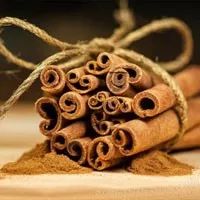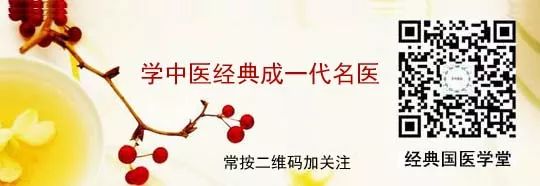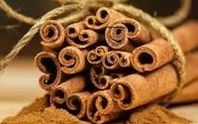
Rou Gui (Cinnamon) has a sweet and spicy flavor, aromatic qi, and a warm nature. It enters the Foot Jueyin Liver Meridian, warming the liver and nourishing the blood, breaking blood stasis and dissipating masses, expelling dampness and cold from the waist and legs, alleviating abdominal and lateral pain, strengthening the heart, and warming the cold dampness in the blood. It is effective for conditions of floating fire due to deficiency, such as toothache, throat pain, stomach pain, and cholera with vomiting. When combined with Ginger (Sheng Jiang) and Fu Zi (Aconite), its efficacy is enhanced, having the power to revive the dead. For those with yang deficiency and cold in the kidneys, and general weakness, regularly consuming it in hot water can prevent illness and prolong life, becoming increasingly nourishing with continued use. It also moistens dryness in cases of yin dryness, with effects that are remarkable.
The liver belongs to wood and stores blood, with blood embodying the qi of wood. Its nature is warm, and warm qi rises, promoting yang and comfort. When accumulated, it generates heat, transforming into heart fire. The warmth of wood is half the rise of yang, while the heat of fire is the full floating of yang. Sufficient warm qi leads to strong yang and health; weak warm qi results in excess yin and illness. The revival of yang brings life, while excess yin leads to death. Life and death, beauty and ugliness differ; the values of yang and yin are distinct. Even the simplest creatures know the beauty and ugliness of life and death. The ignorance of the lower classes regarding the values of yin and yang has been the source of calamities throughout history, rooted in the undervaluation of yang. To seek longevity, one must support yang qi. The method of supporting yang lies in the balance of qi and blood, nurturing its foundation. When the root of yang is weak, it is insufficient amidst the water and wood of the fetus, leading to deficiency without surplus (as stated by Huang Yuan Yu). The liver and spleen must be harmonized, allowing warm qi to rise and transform the yang spirit. The yang spirit commands, and yin evils have no power, thus the path to prolonging life lies here. Therefore, regularly consuming Rou Gui can warm the liver, nourish the blood, strengthen the heart, and improve digestion. For women with irregular menstruation, abdominal pain during menstruation, excessive bleeding, and various conditions of deficiency and cold, it is quite effective. Rou Gui is a tropical plant, produced in Vietnam and Guangxi, China, known for its spicy and sweet flavor, with the oily variety being the best (the top quality is even better, while medium quality is also good; ordinary cinnamon has weaker effects but can still be used). For those who are weak and pregnant, with insufficient fetal qi, poor appetite, or intermittent chest and stomach pain with vomiting, the combination of Rou Gui, Fu Zi, and Ginger is not only safe for the fetus but also an excellent tonic for it.
For warm diseases, summer heat, and Yangming heat-dryness conditions, it should be avoided.
Rou Gui has a thick bark and is rich in oil, with a strong flavor, specifically warming the cold in the heart, liver, spleen, and blood, removing stasis and generating new blood. It is best consumed by soaking in water rather than decocting, as prolonged decoction will cause the volatile oils to evaporate and lose efficacy. Due to its thick bark, it should be peeled to avoid impurities. The Gui Zi (Cinnamon Twig) has a milder effect than Rou Gui and can be used as a substitute, but it cannot replace the action of Gui Zhi (Cinnamon Twig Tip). Recently, a type of Rou Gui with a sticky sap has been discovered in Yunnan and Yuanyang, which, although spicy and warm, forms clumps when soaked in water, making it difficult to dissolve and causing discomfort in the chest and stomach; it is not suitable for medicinal use.
(1) For summer mushroom poisoning, causing vomiting or diarrhea, use 2-5 qian of Rou Gui, ground finely and soaked in water for relief.
(2) For both true and false cholera, with vomiting and diarrhea, and abdominal cramping, if medical treatment is delayed, urgently use 3-5 qian of Rou Gui, ground finely and soaked in water; it is effective and harmless, and then seek further medical treatment; this is an emergency remedy.
(3) In times of unusual weather, when the body’s resistance is weak, often leading to chills and other symptoms, if medical treatment is not immediately available, 1-3 qian of Rou Gui, ground finely and soaked in water will be effective. There is a saying that one should avoid Rou Gui for chills, which is a misunderstanding.
(4) When in areas with miasma, regularly consuming a bit of Rou Gui powder or soaking it in water can prevent miasma and cholera-related vomiting and diarrhea.
(5) When traveling by plane, car, or boat, if experiencing dizziness and vomiting, consuming 0.5-1 qian of Rou Gui powder will be effective. For long walks, holding a bit of Rou Gui in the mouth can generate saliva, prevent shortness of breath, and quench thirst during the journey.
(6) If poisoned by improperly cooked Fu Zi slices, causing anesthesia and discomfort, consuming 3-5 qian of good Rou Gui soaked in water will provide immediate relief for mild cases and gradual recovery for severe cases (avoid using cold water for gastric lavage, as it often leads to death; this has been repeatedly observed, so caution is advised).
(7) For stroke with inability to speak, if medical treatment is delayed, administering 3-4 qian of good Rou Gui soaked in water will be immediately effective, facilitating the expulsion of phlegm. This serves as a temporary emergency measure, having a strong heart and phlegm-resolving effect, followed by proper treatment.
(8) For toothache, throat pain, stomach pain, nausea, and vomiting, with a white and moist tongue coating and no thirst, 2-3 qian of good Rou Gui soaked in water is quite effective. As for formulas containing Rou Gui, such as:
1. Gui Fu Decoction: 2 liang of Fu Zi, first cooked thoroughly. 3 qian of Rou Gui, ground finely and soaked in water to mix in.
This formula uses Fu Zi to warm the cold of the kidney water, Rou Gui to warm the stagnation of the liver wood, strengthening the heart and warming the cold in the blood. It can elevate water and lower fire, harmonizing heart and kidney, allowing the liver wood to warm and generate heart blood. The liver stores the soul, and the heart houses the spirit; when the liver is unblocked, the heart and kidney connect, and the spirit is tranquil. This is effective for heart disease causing palpitations, anxiety, and insomnia, and is beneficial for the weak, promoting health and longevity.
2. Kan Li Dan: 2 liang of Fu Zi, 5 qian of Rou Gui, 4 qian of Hua Fen (Shell Powder), 3 qian of Zhi Gan Cao (Honey-Fried Licorice), 8 qian of Gui Yuan Rou (Longan Flesh), 8 qian of Sheng Jiang.
This formula treats heart-related anxiety and is extremely effective.
3. Da Hui Yang Yin: 2 liang of Fu Zi, 1 liang of Gan Jiang (Dried Ginger), 4 qian of Rou Gui, 3 qian of Zhi Gan Cao.
This formula can revive yang and rescue from reversal, strengthen the heart and stabilize the kidneys, warm the middle and soothe the liver, and treat all urgent conditions of yang deficiency and excess yin, having the power to revive the dead. For those with chronic yang deficiency and weakness, regular consumption can restore health, akin to a withered tree encountering spring, promoting health and longevity.
4. Gui Fu Li Zhong Decoction: 3 qian of Ren Shen (Ginseng) to 1-2 liang (can be replaced with Dang Shen), 1-2 liang of Gan Jiang, 5 qian to 1 liang of Bai Zhu (White Atractylodes), 3-5 qian of Zhi Gan Cao, 2-4 liang of Fu Zi, 3-5 qian of Rou Gui.
This formula greatly supplements the innate heart and kidney yang and the acquired spleen and kidney yang, treating chronic diarrhea, dysentery, and digestive disorders with high efficacy.
5. Yang Ba Wei Di Huang Wan: 1 liang of Shu Di Huang (Rehmannia), 5 qian of Fu Ling (Poria), 3 qian of Jujube Peel, 5 qian of Huai Shan Yao (Chinese Yam), 3 qian of Fen Dan (Powdered Dan), 3 qian of Zei Xie (Alisma), 2 liang of Fu Zi, 4 qian of Rou Gui.
This formula treats kidney deficiency of both yin and yang, but should be avoided in cases of wind-cold, and used cautiously in cases of excess yin and deficiency yang, as excessive use may lead to swelling and collapse.
Rou Gui has numerous benefits for all cold-damp deficiency conditions, and further elaboration is unnecessary. The above five formulas and their significant effects are provided for reference.
Recommended Articles:
It is difficult for folk TCM practitioners to obtain certification, as hard as reaching the sky!
Observing the challenges faced by folk TCM practitioners in assessments!
The best general practitioners are TCM practitioners, with a bright future ahead!
TCM should completely abolish the “Physician Qualification Certificate” and switch to clinical examinations!
The world has embraced TCM treatment, yet China still imposes restrictions on it!
Rather than regulating “illegal medical practice”, it is better to fully open up!
For China to achieve completely free healthcare, TCM is essential!
Using Western medicine for cancer treatment is fatal; TCM should be used in this way!


